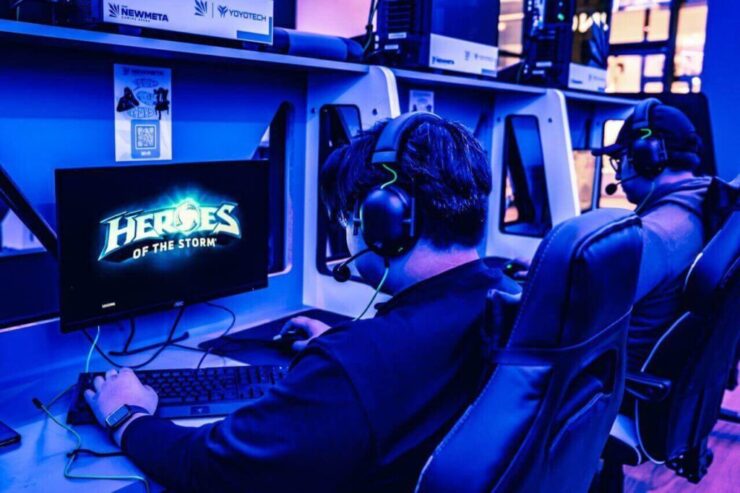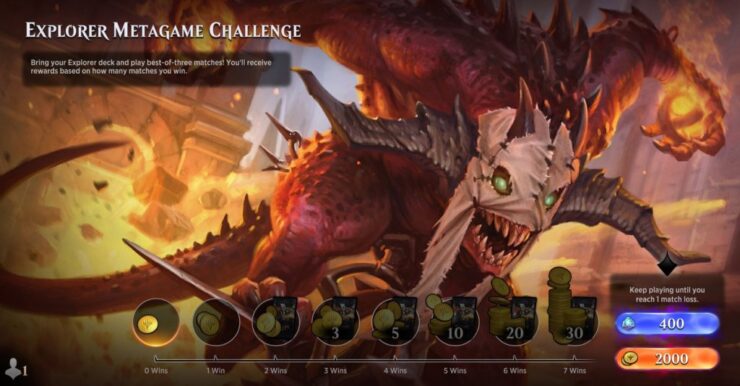Meta gaming refers to the strategy and decisions players make based on information outside the immediate game environment or its inherent mechanics. It is the game played “above” the game, incorporating knowledge from sources like community discussions, previous experiences, or trends among top players. This external knowledge shapes how players approach the game itself.
It is the art of playing not just within the confines of the virtual world but also in the broader arena of shared insights and experiences. Players go beyond the buttons they press and the characters they control, delving into forums, videos, and discussions to gather valuable data. This external information isn’t just a side note—it profoundly influences their decision-making. It’s akin to having a treasure map to navigate the game’s uncharted waters.

Importance of understanding meta gaming in the context of strategy games
In strategy games, simply knowing the rules isn’t enough. Winning consistently demands a comprehension of the evolving strategies players adopt as they analyze, reinterpret, outside help from outlets such as TheClashify, and innovate game mechanics. Hence, understanding meta gaming can be the key to mastering these games, as it offers insights into the collective strategic mind of the player base.
Understanding Meta Gaming
Meta gaming can be viewed as the “game outside the game.” It transcends the written rules, relying instead on players’ collective experiences, discussions, and innovations. For example, in a game like chess, while the moves and pieces have been constant for centuries, the strategies and openings have evolved based on player innovation and external analysis.
Distinction between in-game actions and meta-level decisions
While in-game actions relate directly to gameplay mechanics (like moving a pawn in chess), meta-level decisions are influenced by external factors. This might include choosing a specific strategy because it’s currently popular or because a top player recently used it in a tournament.
Types of Meta Gaming
Metagame in competitive video games
Competitive video games, especially those in the multiplayer realm, present a dynamic metagame that undergoes constant evolution. Players perpetually adjust their strategies, countering prevalent tactics while venturing into uncharted tactical territories.
Metagame in tabletop and card games
In games like Magic: The Gathering, where card variety is extensive, the metagame serves as the compass guiding players through the shifting landscape of card interactions. Determining which cards or combos dominate is an intricate dance of adaptability.
Metagame in role-playing games (RPGs)
Within RPGs, the metagame materializes as players meld in-character experiences with out-of-character knowledge. Decision-making is influenced by anticipation of narrative twists and the calculated crafting of interactions, enriching immersion.
Factors Influencing the Metagame

Strategies evolve organically. Today’s triumphant tactic may wane tomorrow due to three driving forces:
The evolving nature of strategies
Player innovation propels the rise and fall of strategies, creating a dynamic ecosystem where freshness and adaptability thrive.
Impact of game updates, patches, and balance changes
Developers’ continuous efforts to balance the game directly sculpt the metagame’s contours, pushing players to reassess and reconfigure strategies.
Player-driven shifts in the meta
Influential players or communities inject new strategies into the metagame, swaying its direction and breathing life into ever-changing landscapes.
Meta Gaming in eSports

The metagame’s gravity amplifies within eSports, where stakes and influence both surge:
The role of professional players in shaping the meta
Pro players in tournaments not only vie for trophies but also sculpt the meta’s trajectory, as their choices ripple through global player strategies.
How tournaments and competitive scenes influence the metagame
A single victorious strategy in a major event can snowball into global adoption, showcasing the metagame’s sensitivity to competitive triumph.
Case studies
In games like League of Legends and Dota 2, metagame revolutions punctuate almost every tournament, emphasizing the metagame’s fluidity and strategic dynamism.
Metagame in Casual Play

For casual players, the metagame serves as an optional guide:
How casual players engage with the metagame
Casual gamers utilize the metagame as a reference point, aligning their strategies with it to elevate gameplay enjoyment without sacrificing individuality.
Balancing between following the meta and personal preferences
Within the metagame’s boundaries, casual players weave their playstyles, amalgamating optimal strategies with personal flair, fostering both competitiveness and amusement.
Metagame vs. Game Exploits
Discerning legitimacy amid strategies and exploits underscores ethical gameplay:
Distinguishing legitimate meta strategies from exploits
Legitimate meta strategies align with the game’s intent, while exploits, despite residing within the rules, contravene the spirit of equitable gameplay.
The ethics of using or countering game exploits in the metagame
Ethical debates swirl around exploiting; its impact on fair play tests the community’s moral compass, navigating the realm between ingenuity and unsportsmanlike conduct.
Metagame Analysis Tools
To comprehend the metagame’s ebb and flow, players need reliable tools:
Websites, forums, and data repositories
Online hubs like Reddit and dedicated game forums, bolstered by analytical platforms, furnish players with invaluable insights into the ever-evolving meta.
Adapting to the Metagame

Maintaining competitiveness entails staying attuned to these tools, thereby fortifying one’s adaptability against the relentless tide of shifting strategies.
Metagame and Social Dynamics
The metagame’s ripple effect extends to community bonds:
Formation of in-game communities
Shared meta strategies act as the glue knitting players into tight-knit communities, whether it’s guilds, clans, or teams united by a common strategic vision.
How meta gaming influences player interactions
Meta knowledge is a shared language fostering communication, collaboration, and friendly competition, nurturing camaraderie within the expansive virtual realms.
Metagame’s Psychological Aspect

The metagame is not only tactical; it’s a mental landscape:
Mindset for effective meta engagement
Navigating the metagame necessitates an adaptable, forward-thinking, and resilient mindset, enabling players to ride the waves of strategy evolution.
Dealing with metagame shifts
Players must develop coping mechanisms to handle the metagame’s ceaseless oscillation, mastering the art of embracing change, learning from it, and maintaining equanimity.
Conclusion
Meta gaming is the evolving soul of strategy games, representing the collective wisdom and innovation of its players. While it offers a competitive edge, players should remember to find balance. After all, games are, at their heart, about enjoyment. Embrace the meta, but don’t be bound by it, and explore the thrilling strategies and plays that lie beyond the immediate game.

